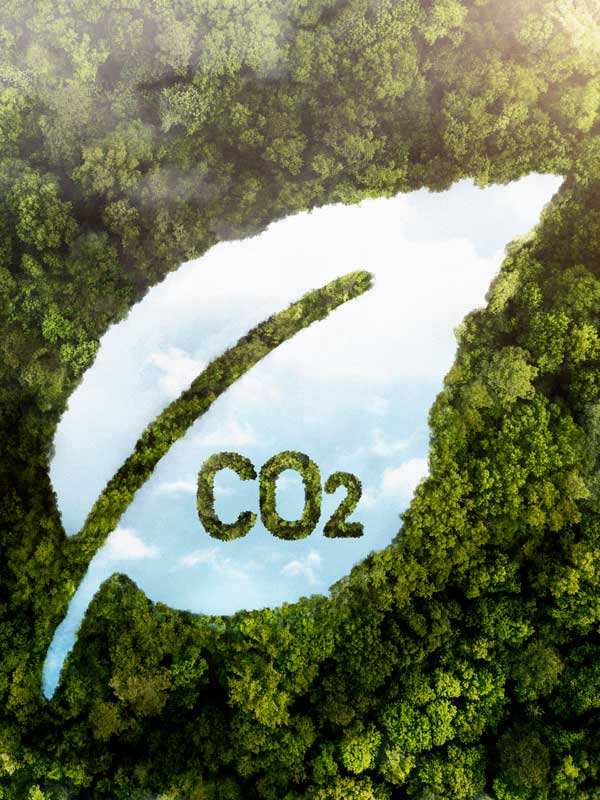I Encuentro del Ecosistema de la Carbono Neutralidad del Ecuador

The Subsecretariat of Climate Change, with the support of international cooperation, academia, and the private sector, will organize the "I Meeting of the Carbon Neutrality Ecosystem of Ecuador," to be held on the 28th and 29th of August of the current year in the city of Quito.
This event will feature discussions, technical roundtables, as well as the launch of the Ecosystem Compensation Accelerator, where initiatives for Greenhouse Gas Mitigation will be presented and selected to participate in this initiative.
These efforts gain much more significance now, as countries increasingly focus on developing strategies for carbon neutrality, which is impossible without creating spaces that allow the massive participation of all sectors of society.
Date and Time:
Monday, August 28, 2023, from 10:00 AM to 5:30 PM
Tuesday, August 29, 2023, from 9:00 AM to 2:00 PM
Free admission event with prior registration
Objectives
- Share experiences from the business sector regarding climate change mitigation actions and recognize companies that have achieved the Distinctive Quantification and/or Carbon Footprint Reduction Certification levels under the Ecuador Zero Carbon Program.
- Exchange information and share experiences about compensation schemes with international stakeholders, contributing to the capacity building of different actors in the country as part of the implementation process of the National Greenhouse Gas Emission Compensation Scheme, issued through Ministerial Agreement 053 on June 11, 2023.
- Create a participatory space where key players in the Compensation Ecosystem can present their proposals to overcome challenges and enhance the benefits that the National Compensation Scheme can bring to Ecuador.
- Launch the Accelerator for the Compensation Ecosystem, which will enable the selection, management, and support of the country's first projects that will be part of the Compensation Initiatives Portfolio.
Background
The climate crisis requires the effort of all sectors to implement the Paris Agreement and keep global warming to a maximum of 1.5°C on average. This necessitates an average reduction of 7.6% in global emissions each year before 2030 and maintaining this trajectory. However, emissions are increasing at record levels, heading towards a 14% increase in this decade, as stated by the Secretary-General at the United Nations General Assembly on September 20, 2022.
The Latin American region has been joining forces with international cooperation for the development of Carbon Footprint Programs and the management of compensation schemes. Ecuador, for some years now, has been standing out in the region for its innovative initiatives in constructing public policies for Climate Change management. In this regard, its Carbon Footprint program and its National Greenhouse Gas Emission Compensation Scheme are pioneering mechanisms in the region.
The Ministry of Environment, Water, and Ecological Transition of Ecuador officially issued the Ecuador Zero Carbon Program through Ministerial Agreement 018 on May 6, 2021. Since then, the PECC (Ecuador Zero Carbon Program) has become a public policy instrument aimed at promoting the quantification, reduction, and neutrality of carbon footprint in productive and service entities, both public and private. According to PECC, public or private entities that have verified their greenhouse gas emissions (quantification phase) and have implemented mitigation actions for these emissions (reduction phase) are granted the opportunity to compensate for their excess or unavoidable emissions (neutrality phase) through a compensation scheme.
Additionally, the Ministry of Environment, Water, and Ecological Transition, through Ministerial Agreement MAATE-2023-053 on June 11, 2023, issued the "National Greenhouse Gas Emission Compensation Scheme." This legal instrument establishes guidelines for registered public and private entities in PECC and/or foreign companies to determine economic compensations for initiatives focused on emission reduction and/or removal, thus achieving carbon neutrality.
In this context, the Subsecretariat of Climate Change, with the support of international cooperation, academia, and the private sector, will organize the "I Meeting of the Ecuador Carbon Neutrality Ecosystem" to be held on August 28th and 29th of the current year in the city of Quito. This event will include discussions, technical discussion tables, as well as the launch of the Compensation Ecosystem Accelerator, where Greenhouse Gas Emission Mitigation Initiatives that will participate in this initiative will be presented and selected.
These efforts gain even more relevance now, as countries increasingly focus on developing strategies for carbon neutrality, which is impossible without creating spaces that allow the massive participation of all sectors of society.
Agenda
| Time | Activity | Panelist |
|---|---|---|
| BLOCK 1: THE BUSINESS SECTOR IN CARBON FOOTPRINT MANAGEMENT | ||
| Session 1: Award Ceremony for Companies in the Ecuador Zero Carbon Program | ||
| 10:00-10:30 | #PutYourCarbon Activation | Organizer |
| 10:30-10:35 | Welcome to the Meeting | Diego Quiroga (USFQ Rector) |
| 10:35-10:45 | Advancements in Quality Management System under the Ecuador Zero Carbon Program | Daniel Eduardo Legarda (Minister of MPCEIP or delegate) |
| 10:45-11:20 | Award Presentation | Awarded Private Companies |
| 11:20-11:30 | Results and Achievements of the Ecuador Zero Carbon Program | José Antonio Dávalos (MAATE Minister) |
| 11:30- 11:40 | Photo Session and Session Closure | Moderator |
| 11:40-11:55 | BREAK | |
| Session 2: Experiences in Implementing the Ecuador Zero Carbon Program | ||
| 11:55-12:45 | Panel 1: Successful Initiatives in the Business Sector Contributing to Climate Change Mitigation. Format: Discussion with Moderator Questions and Answers from the Audience |
Awarded Companies Reducing Carbon Footprint Moderated by: UNDP |
| 12:45- 13:00 | Regional Work Presentation of UNDP in Support of Carbon Footprint Programs Format: Virtual Presentation Questions and Answers |
UNDP Representative |
| BLOCK 2: Challenges and Opportunities for Implementing Greenhouse Gas Emission Compensation | ||
| Session 1: Experiences in Greenhouse Gas Emission Compensation at the Regional Level | ||
| 14:30-14:35 | Welcome to Block II | UNDP Representative |
| 14:35-15:15 | Panel 2: Experiences in Greenhouse Gas Emission Compensation. Challenges and Opportunities Format: Discussion with Moderator Questions and Answers from the Audience |
Karina Barrera (Climate Change Subsecretary) Project Developers Representatives Carbon Standards Representatives Moderated by: Conservation International (To Be Confirmed) |
| Session 2: Enablers for Implementing the National Greenhouse Gas Emission Compensation Scheme - Expectations, Opportunities, and Challenges (Working Groups) | ||
| 15:15-15:20 | Opening | MAATE Representative |
| 15:20-15:25 | Methodology Explanation | MAATE and Delegates |
| 15:25-16:25 | Working Groups (Declaration)
|
Actors representing respective working groups |
| 16:25-16:35 | BREAK | |
| 16:35-17:05 | Presentation of Results | Spokespersons representing each working group |
| 17:05 | Session Closure | |
Day 2: August 29, 2023
| Time | Activity | Panelist |
|---|---|---|
| BLOCK 3: Accelerating the Greenhouse Gas Emission Compensation Ecosystem | ||
| Session 1: Accelerating Greenhouse Gas Emission Compensation Implementation in Ecuador | ||
| 9:00-9:15 | Welcome to Block III | |
| 09:15-09:25 | Presentation of the Compensation Ecosystem Accelerator | Karina Barrera (Climate Change Subsecret ary) |
| 9:25-10:25 | Panel 3: Practical Experiences in Formulating Compensation Initiatives Format: Presentations and Discussion with Moderator Questions and Answers from the Audience |
Moderated by: TNC Project Developers Compensation Initiative Implementers Carbon Standards |
| 10:40-10:45 | Photo Registration and Session Closure | |
| 10:45-11:00 | BREAK | |
| Session 2: Closed Session – Compensation Project Accelerator | ||
| 11:00-13:00 | Meeting of Compensation Initiatives for the Acceleration Process | Moderated by: MAATE |
Data and Figures
The Ecuador Zero Carbon Program promotes, within the productive and service sectors, proper management of carbon footprint to build a more sustainable future. Through ecological transition, it aims to move towards responsible patterns that contribute to decarbonizing the country's economy. This involves a collaborative effort and commitment between the government and the private sector to create a symbiotic relationship targeting a low-carbon and climate-resilient economy.
The program's objective is to encourage action against climate change by both public and private organizations, whether national or foreign, non-profit or for-profit. It operates under a transparent and verifiable scheme, allowing these organizations to report their commitments and access environmental incentives. This is achieved through the quantification, reduction, and neutralization of their greenhouse gas (GHG) emissions generated in various activities.
Currently, there are XXX voluntarily adhered companies to the PECC, with XX companies in the application process. Additionally, there are 30 strategic partners and 9 Conformity Assessment Bodies (OECs).
Compensation aims to recognize the efforts of those implementing effective, measurable, real, and verifiable actions that reduce and/or remove emissions. It also seeks to mobilize financing for climate change mitigation, strengthen climate change adaptation processes, reduce sustainable development gaps, and generate environmental and social co-benefits. This contributes to national policies and multi-actor, multilevel climate action.
The regulatory instruments include the technical standards of the Ecuador Zero Carbon Program, the technical standard of the compensation scheme, and GHG certification programs.
The regulations define the roles of the National Environmental Authority, mitigation initiative implementers, proponents, and conformity assessment bodies.
Implementers ensure the design and implementation of mitigation initiatives considering the identification of environmental and social co-benefits, the application of environmental and social safeguards, benefit distribution plans, and monitoring, reporting, and verification mechanisms.
Proponents (companies) financially compensate the reduction and/or removal efforts of GHG emissions made by Compensation Implementers through approved mitigation initiatives listed in the Compensation Portfolio.
For governance, the mechanism includes the implementation of the "Strategic Carbon Footprint Committee," consisting of various MAATE authorities, with advisory input from representatives of other executive branch institutions, academia, the private sector, and indigenous peoples and nationalities.
Mitigation initiatives must address co-benefits and environmental and social safeguards, apply these safeguards, propose a benefit distribution plan, and establish a monitoring, reporting, and verification mechanism.
GHG emission reductions and/or removals are expressed in Carbon Equivalent Units (CEUs), which must be real, permanent, additional, verifiable, traceable in a single registry, transparent, and avoid double counting.
To maintain the traceability of mitigation initiatives and registered CEUs, the National Compensation Registry will be created, consisting of the compensation portfolio and the carbon equivalent units registry.
The categories for mitigation initiatives include the Land Use, Land-Use Change, and Forestry (LULUCF) sector and other mitigation sectors (energy, waste, industrial processes, non-service-related agriculture).
Within the LULUCF sector mitigation initiatives encompass activities such as natural regeneration, reforestation and afforestation, improved forest management, agricultural land management, paramo conservation, and other ecosystems. Two application scopes have been defined: Scope 1 for initiatives on properties of less than 500 hectares that measurably, truly, and verifiably contribute to closing sustainable development gaps, within national indicators and the 2030 SDG Agenda framework. Scope 2 initiatives for LULUCF sector are those that do not meet the criteria of Scope 1.
To prevent double counting of emissions in REDD+ initiatives, an annual emissions reduction quota will be established for use by REDD+ mitigation initiatives belonging to the compensation portfolio, based on national accounting of forest emission reductions.
Mitigation initiatives that wish to be registered in the compensation portfolio before implementation must request eligibility assessment from the National Environmental Authority, including detailed documentation specified in the ministerial agreement.
Benefits provided by the regulation through the Ecuador Zero Carbon Program include:
-
Use of the mark (AM046 and AM047) - awardees can use the mark according to the level they have achieved:
- Carbon Footprint Quantification Distinctive - valid for 1 year without renewal.
- Carbon Footprint Reduction Certification - valid for 2 years with renewal.
- Carbon Footprint Neutralization Certification - valid for 3 years with renewal.
-
Public Procurement (Performance requirement established by SERCOP) - awardees can access and ensure their presence in SERCOP's Electronic Catalog of Public Procurements.
-
Tax and Labor Benefits (CEPAI Resolution No. 001 for new investments) - machinery, equipment, or technology (MET) contributing to GHG emission reduction can apply for a 100% additional depreciation or amortization tax benefit with the IRS. They can also access a reduced income tax rate of more than 10 points through the second proportionality calculation method. Regarding labor benefits, awardees may be exempt from generating net employment.

